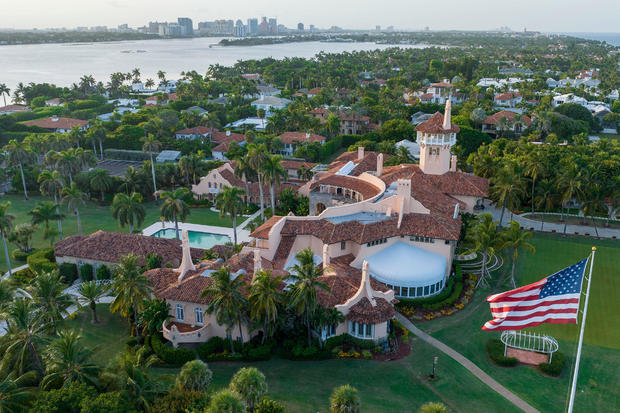Lawyers for former President Donald Trump on Monday entered a filing pushing back on U.S. District Judge Raymond Dearie’s request that the former president clarify actions he took to declassify material seized during the Aug. 8 search of his Mar-a-Lago residence.
The filing follows Dearie’s appointment last week to serve as an independent arbiter or special master tasked with reviewing the documents retrieved by the FBI during its search.
Trump’s attorneys referenced a draft plan by Dearie that required the plaintiff, that is, Trump, to “disclose specific information regarding declassification to the Court and to the Government.” Dearie has scheduled a hearing to take place at a federal court in Brooklyn, New York, on Tuesday at 2 p.m. ET.
In the filing on Monday night, lawyers for the former president suggested that they may not comply and argued that any declarations regarding the declassification of documents could potentially be used as a defense against any future criminal charges.
Steve Helber / AP
“Otherwise, the Special Master process will have forced the Plaintiff to fully and specifically disclose a defense to the merits of any subsequent indictment without such a requirement being evident in the District Court’s order,” lawyers for Trump wrote.
According to a detailed FBI inventory receipt released on Sept. 2, federal law enforcement seized 33 items, boxes or containers when the search warrant was executed on Aug. 8. The FBI had previously released an inventory of seized items that included documents identified as “Various classified/TS/SCI documents,” with some of those marked “top secret,” the highest classification ranking.
According to the federal regulations governing classification, a “top secret” designation is reserved for material whose unauthorized disclosure could cause “exceptionally grave damage” to national security.
The “SCI” designation is an abbreviation for “Sensitive Compartmented Information” and refers to classified information involving sensitive intelligence sources, methods or analytical processes. Any information with the designation can only be discussed within a “SCIF” — a “Sensitive Compartmented Information Facility” — a secure room or building limited to government officials with a corresponding security clearance.
After news of the FBI’s search first emerged, the former president claimed in a post on Truth Social that the material “was all declassified.” But in the following weeks, Trump’s legal team has not explicitly repeated that the former president took steps to declassify any of the materials in motions and hearings set forth before the court.
While a U.S. president does have sweeping declassification abilities, there is a process in place to declassify documents that involves written documentation and consultation with relevant government agencies. It remains unclear Trump formally declassified any of the materials moved from the White House to his South Florida home.
For its part, the U.S. Justice Department has proposed a list of topics that prosecutors wish to discuss during Tuesday’s initial meeting before the special master. Among them, government lawyers have urged Dearie to hire a third-party vendor to scan documents retrieved from Mar-a-Lago to streamline the document review process.
In his role as special master, Dearie has been tasked with vetting the more than 11,000 documents seized by federal law enforcement to determine if any materials retrieved during the search are protected by attorney-client privilege and/or executive privilege.
Federal prosecutors have previously argued that the appointment of a special master would delay the criminal investigation into the handling of sensitive documents at Mar-a-Lago. . Attorneys for the Justice Department believe that any pause of their criminal investigation could harm U.S. national security given the nature of documents discovered at Mar-a-Lago.
Melissa Quinn, Olivia Gazis, Andres Triay and Scott MacFarlane contributed to this report.
